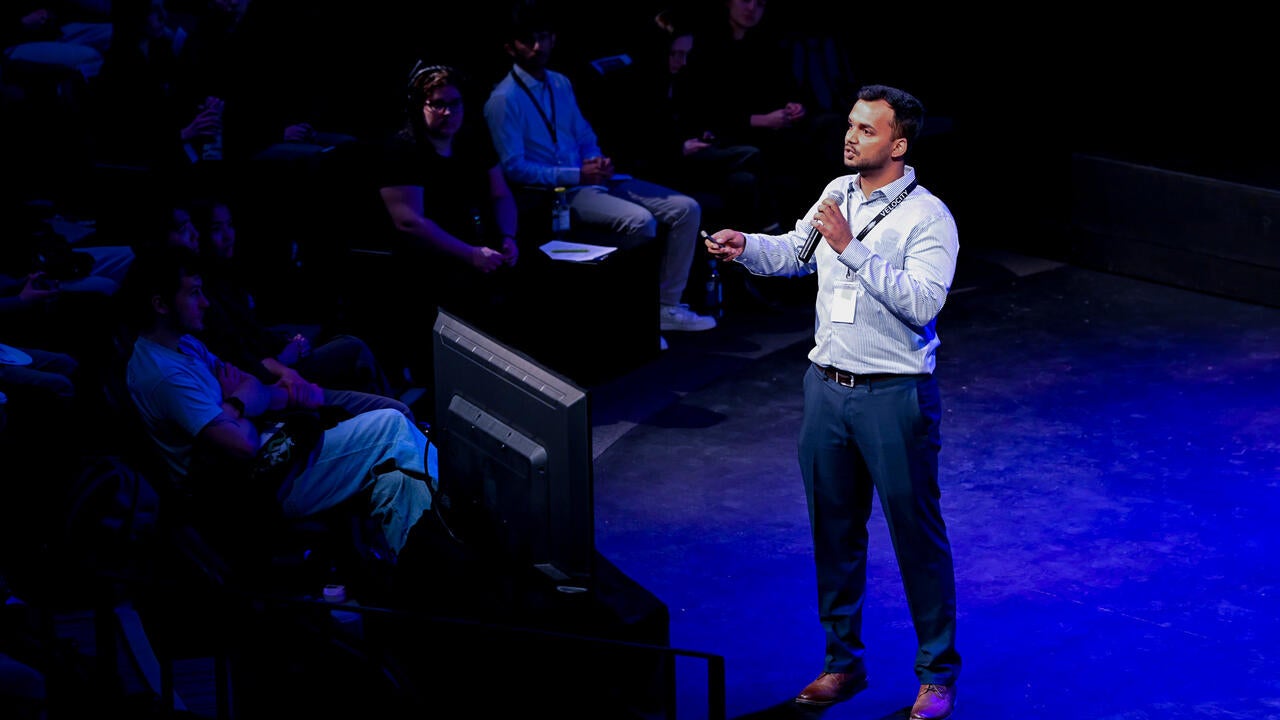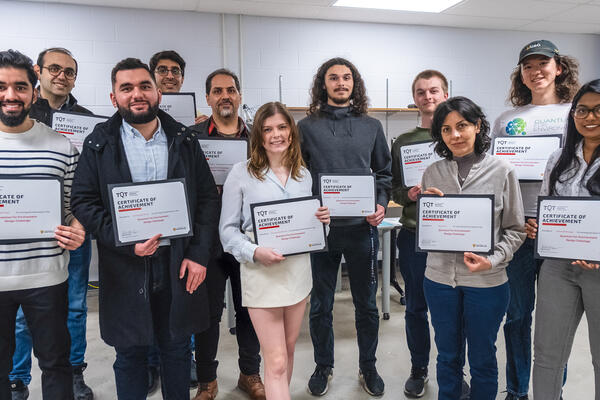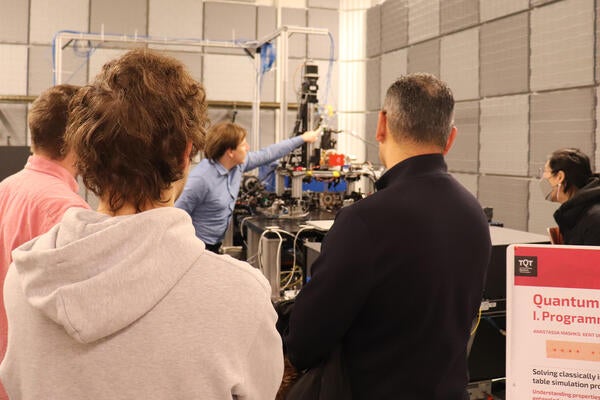
Students pitch solution to boost productivity in manufacturing
Velocity Pitch Competition winner Grease Tech brings industrial machinery maintenance into the 21st century

Velocity Pitch Competition winner Grease Tech brings industrial machinery maintenance into the 21st century
By Naomi Grosman and Will Muir VelocityThere are more than 90,000 manufacturing plants in Canada making our food, vehicles and parts. It’s an industry that contributes significantly to the company’s gross domestic product, yet some manufacturers still use pen and paper to track lubrication maintenance that is necessary to keep the machines running smoothly.
“Missed lubrication can lead to malfunction often resulting in downtime, which means lost money,” says Jesurun Ramesh, co-founder of Grease Tech and one of four winners of the winter 2024 Velocity Pitch Competition. The competition provides funding to help turn University of Waterloo student innovations into businesses
To solve this, Grease Tech integrates hardware and software to ensure precise lubrication of machine bearings to reduce human error and costly failures in manufacturing lines.
Ramesh says an average manufacturing plant has 2,000 machinery points, often bearings, that need to be greased. The current process to track, measure and lubricate is manual and can result in parts being missed, which can lead to temporary plant shutdown and lost productivity.
Grease Tech’s product tracks what parts need lubrication and measures the exact amount needed.
“This addresses the root cause of costly failures, rather than reactive fixes that can cost plants tens of thousands of dollars in downtime,” Ramesh says.
Ramesh and co-founder Minaal Butt are graduate students in the Master of Business, Entrepreneurship and Technology (MBET) program at Waterloo. Butt says she was drawn to working with Ramesh because he understood the challenge so intimately. He had seen the problem firsthand while working as an engineer at a Fortune 500 manufacturing company in the U.S.

Founders Minaal Butt and Jesurun Ramesh with John Dick, Velocity campus director.
“I joined Grease Tech because it was an actual problem to work on,” she says. “As long as you are well aware of the problem, not just an idea, your startup has a better chance to succeed.”
Investigating the manufacturing industry’s need for their product was a high priority for the founders.
“I was overseeing manufacturing plants and giving direction to increase the machinery’s reliability and maintenance and put a process together to solve this problem,” he says. “But innovating at large companies is complicated even when they want to improve processes, that’s why entrepreneurship calls to me.”
Ramesh and Butt have built a prototype and secured paid pilots in both a local Kitchener-Waterloo meat manufacturer plant as well as Fortune 500 company in Dallas that manufactures and assembles cables for marine, medical and other industries.
The co-founders are working out of Velocity’s digital space to refine their prototypes and business strategy. Velocity is Canada’s most successful incubator and is transforming the wayhow businesses are built by rallying resources, building community and breaking down barriers for founders. Butt says that Velocity’s network is powerful because both advisors and other students suggest connections, which accelerates their execution.
“Manufacturing is a traditional industry, but Grease Tech adds enough value that even large companies are interested,” Ramesh says. “This is a problem in all manufacturing globally and can be easily scalable. We want Grease Tech to be the go-to product for all manufacturers, the industry’s household name.”

Read more
12 Waterloo students and postdoctoral fellows receive up to $10,000 in funding to develop their green-tech solutions

Read more
Here are the people and events behind some of this year’s most compelling Waterloo stories

Read more
TQT Quantum Opportunities and Showcase sheds light on quantum research advancements, discoveries and real-world applications
The University of Waterloo acknowledges that much of our work takes place on the traditional territory of the Neutral, Anishinaabeg and Haudenosaunee peoples. Our main campus is situated on the Haldimand Tract, the land granted to the Six Nations that includes six miles on each side of the Grand River. Our active work toward reconciliation takes place across our campuses through research, learning, teaching, and community building, and is co-ordinated within the Office of Indigenous Relations.